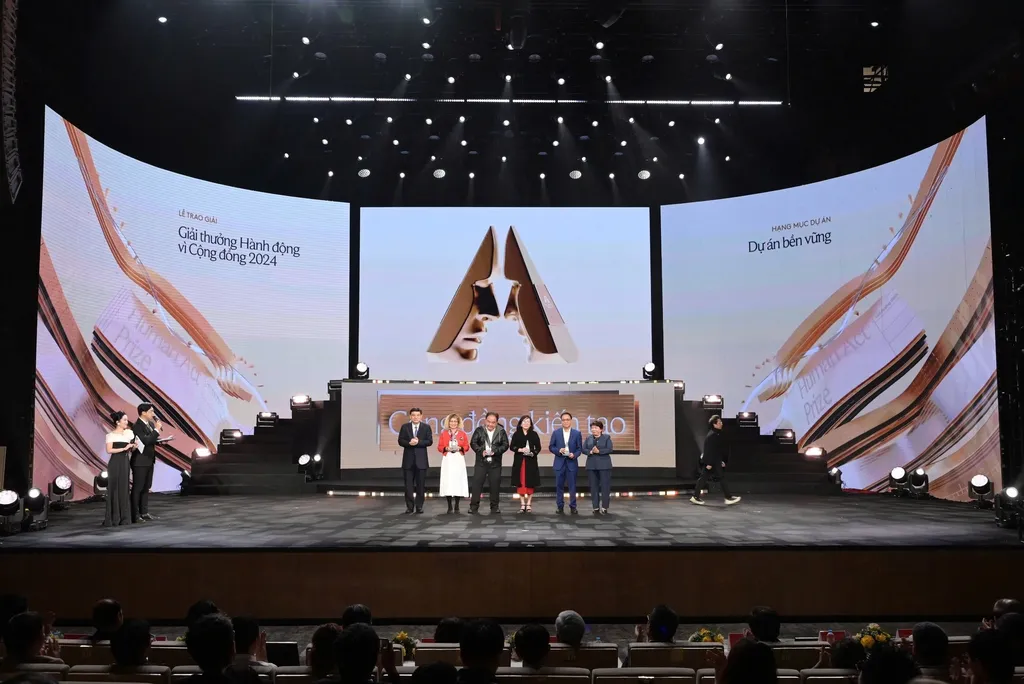 advertisement
advertisement

 |
| Award Ceremony of the Human Act Prize 2024, Sustainable Project Category. Photo: Unilever Vietnam |
With a vision to build a sustainable future, Unilever Vietnam is tirelessly pursuing innovative solutions to minimise environmental impacts.
In recent years climate change has become a global hot potato.
According to research by the Potsdam Institute for Climate Impact Research, by 2050 climate change is projected to cause losses equivalent to 17 per cent of global GDP, or US$38 trillion, annually.
Against this backdrop, ESG emerges as a crucial framework for sustainable development in an era marked by globalisation and climate change.
ESG sets standards to evaluate a business’s sustainability and responsibility.
Vietnam is also joining global efforts to create a sustainable future, where the environment is a central pillar prioritised by the government.
At the 26th United Nations Climate Change Conference, Vietnam, along with nearly 150 other countries, committed to achieving net zero emissions by 2050.
In response to the urgent call for “greening” the economy, pioneering enterprises like Unilever are redefining their operations to build a sustainable economy, reduce reliance on fossil fuels and foster international collaboration in innovation.
Persistent Efforts Recognized by the Human Act Prize
On December 14, 2024, Unilever Vietnam was honoured at the Human Act Prize Gala for Community Action in the “Sustainability Project” category for its “Pioneering journey towards carbon neutrality in operations” initiative.
According to the organisers, Unilever’s project excelled in meeting three key criteria: improving production processes, integrating green technologies and establishing systems to measure environmental impacts
By implementing these innovations, Unilever has not only significantly reduced CO2 emissions in its operations but also created long-term value for both the economy and society.
Strategic Steps Towards Carbon Neutrality
Unilever is taking bold, comprehensive steps toward carbon neutrality, from production improvements to supply chain restructuring.
In Vietnam, it has achieved a major milestone by transitioning entirely to renewable energy in its manufacturing facilities.
The intelligent energy management system at the Bac Ninh factory is a prime example, earning the LEED Green Building Certification, an international standard recognizing environmentally friendly and energy-efficient buildings.
Unilever has invested in green technology projects, including installing solar power systems and using biofuels.
In the supply chain, biomass fuel recycled from wood scraps, damaged pallets, and rice husks has replaced fossil fuels in boilers, cutting CO2 emissions by nearly 10,000 tons annually since 2007.
The effectiveness of these strategies is reflected in impressive figures: 9,684 tons of CO2 eliminated annually from 2007 to 2022; 511 kilograms of SOx emissions reduced each year through biomass fuel use; and 100% elimination of carton waste in transporting packaging from Dynaplast.
Unilever has also implemented and realized a circular economy model in managing waste, such as plastic waste, damaged pallets, and cardboard boxes—transforming waste into energy and fertilizers to support production activities.
Unilever’s efforts not only reinforce its pioneering role but also inspire other businesses to integrate economic development with environmental protection.
With the collaboration of the government and the business community, the goal of a net-zero Vietnam by 2050 is entirely achievable.